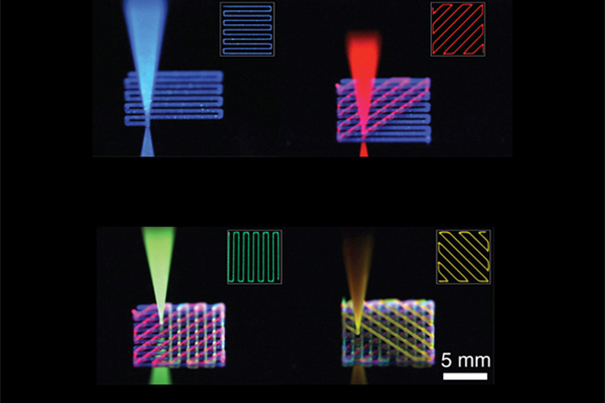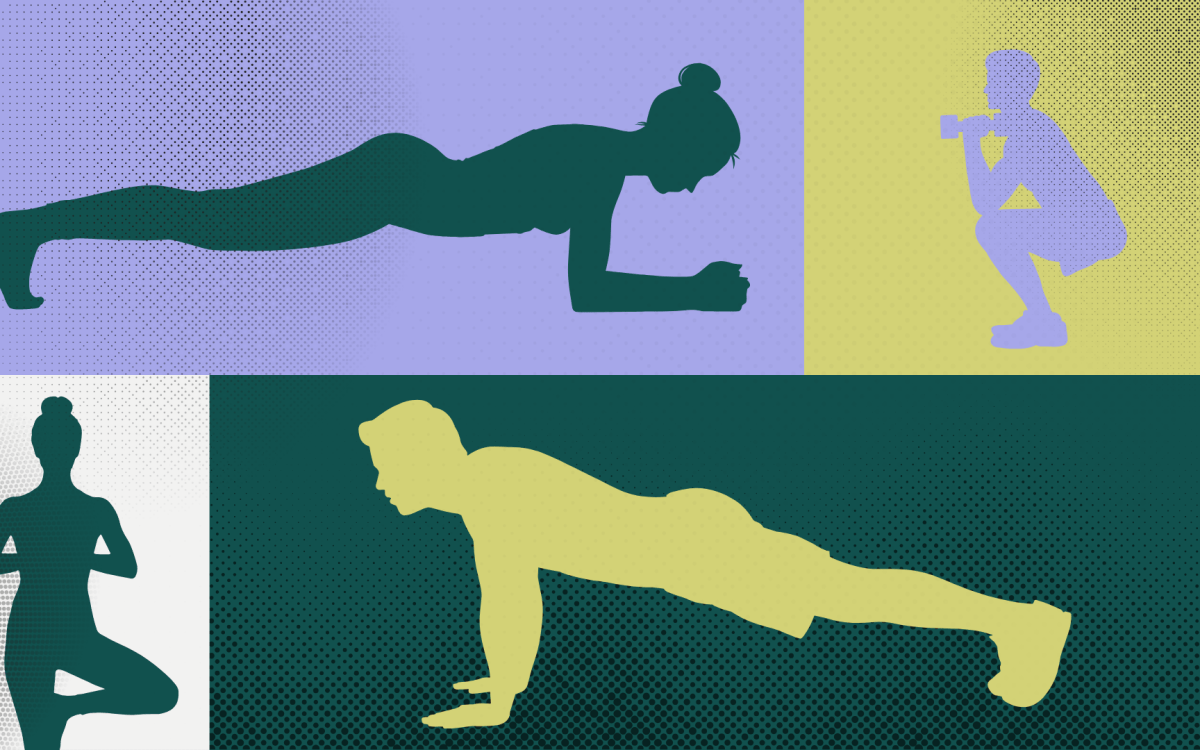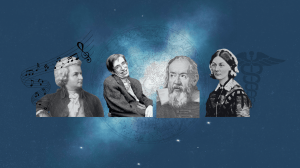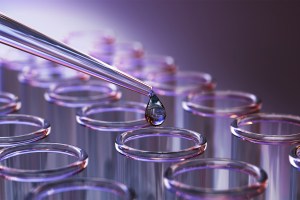Science & Tech
-
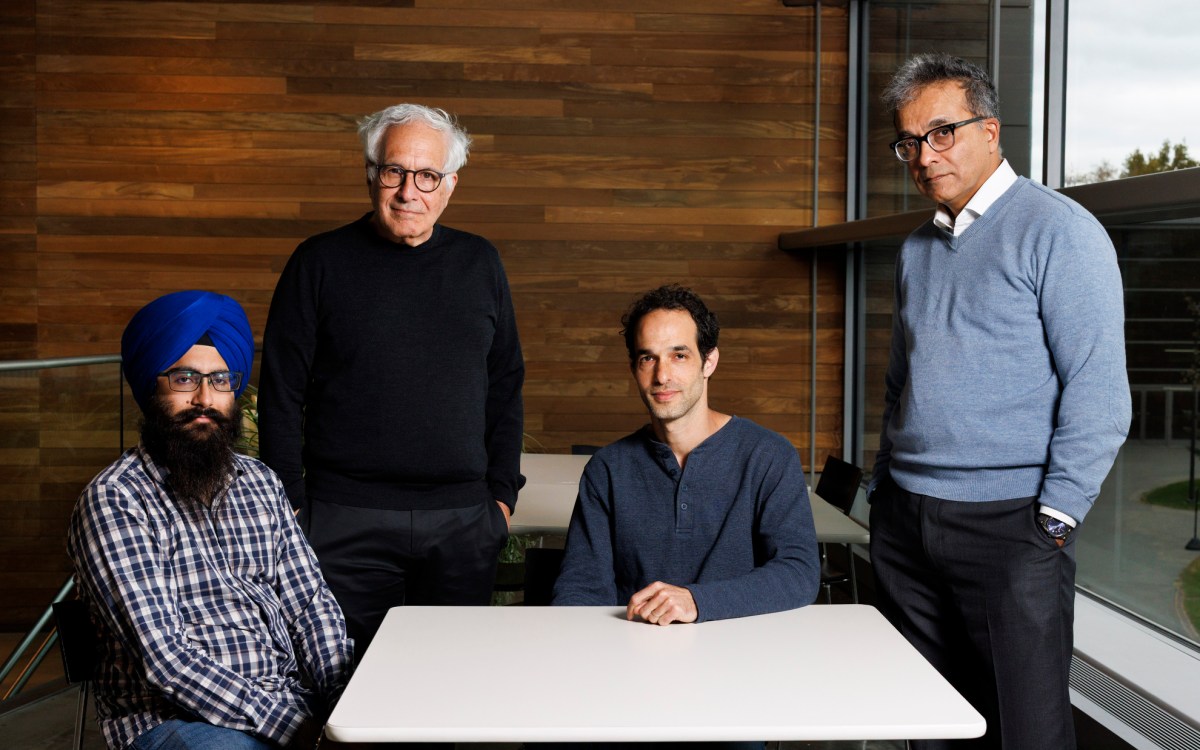
Want to speed brain research? It’s all in how you look at it.
New AI-enhanced scanning method promises to boost quest for high-resolution mapping
-
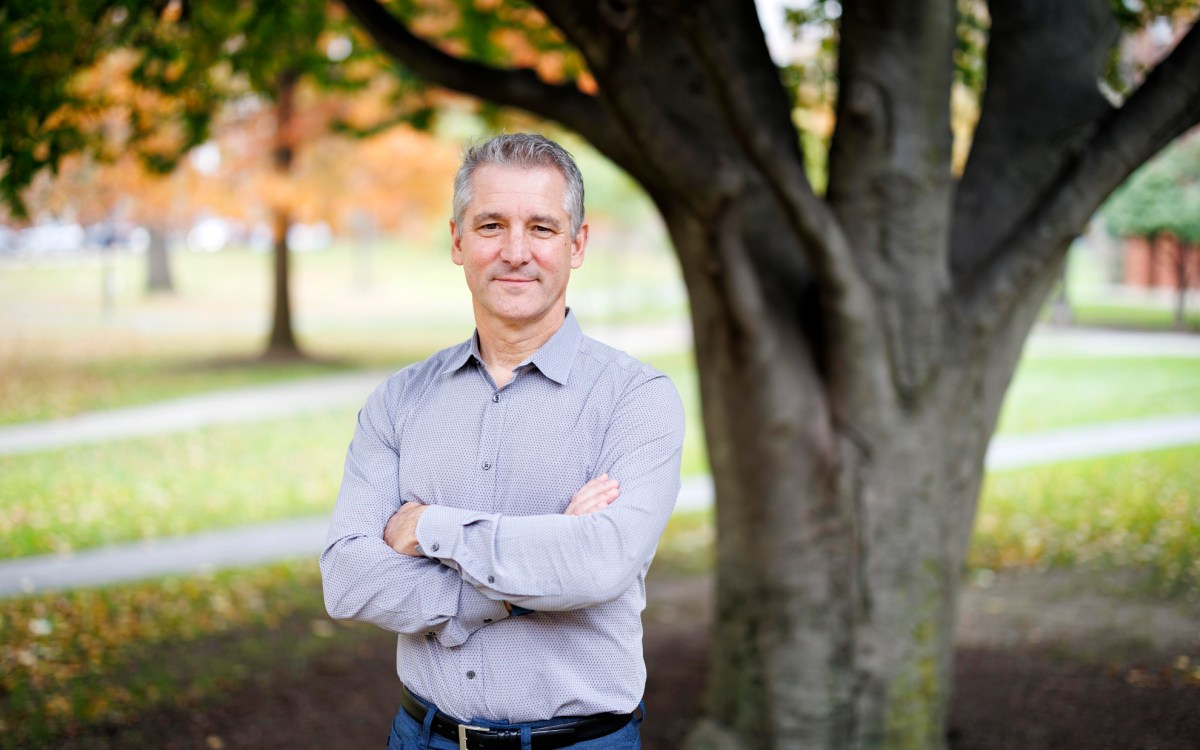
-
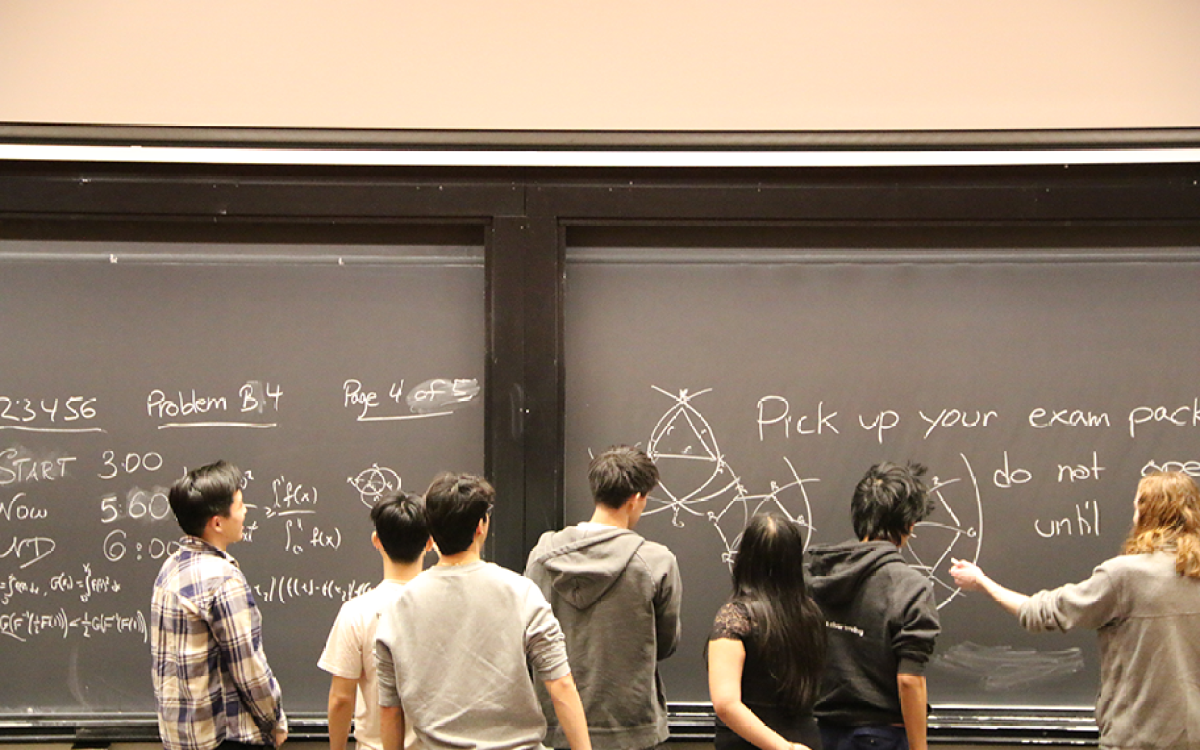
‘It just feels good when you solve the hard problems’
Why do students volunteer to take this notoriously difficult math exam? For the fun of it.
-
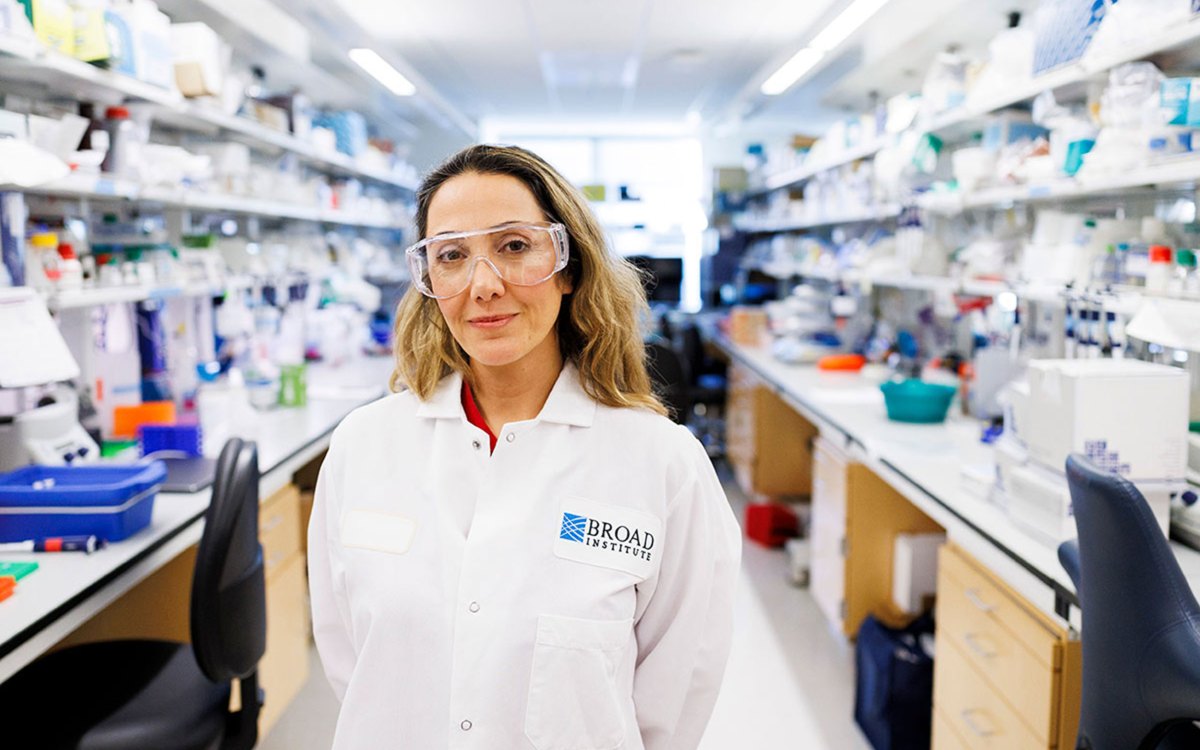
Stopping the next pandemic
Disease surveillance network faced ‘existential cliff’ despite proven success. Then came the $100 million.
-

Rethinking — and reframing — superintelligence
Microsoft researcher says separating AI from people makes systems dangerous and unproductive
-
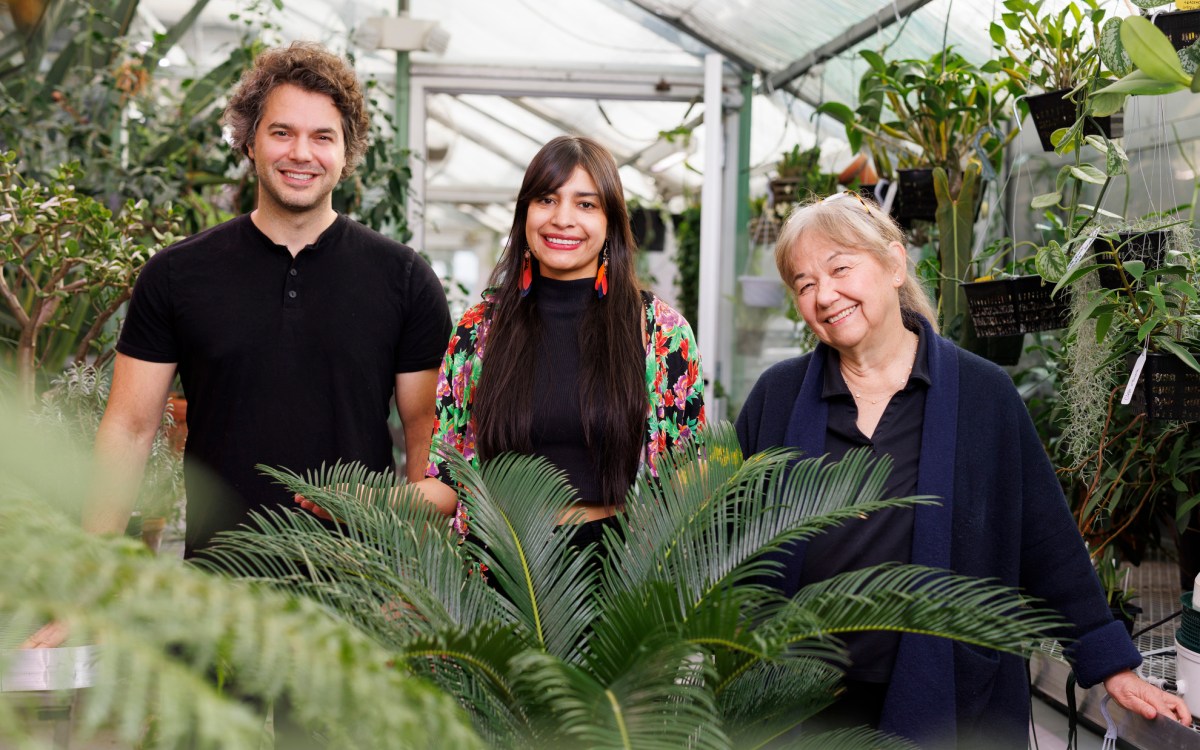
First, male gets heated up, then female, and then, you know
Study shows infrared radiation from plants serves as invitation to pollinating insects
-
Surfing on a super-Earth
For life as we know it to develop on other planets, those planets would need liquid water, or oceans. Geologic evidence suggests that Earth’s oceans have existed for nearly the entire history of our world.

-
A key urban intersection
Harvard researchers are pushing for a closer look at links between green spaces and health in cities.
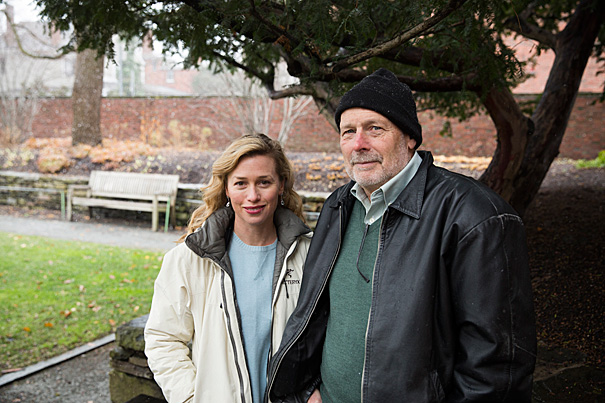
-
Confronting despair with hope
Naomi Klein, author and syndicated columnist, says she hopes that once people understand the enormity of climate change, it will spark conversation on how they can chart a path to deal with it.
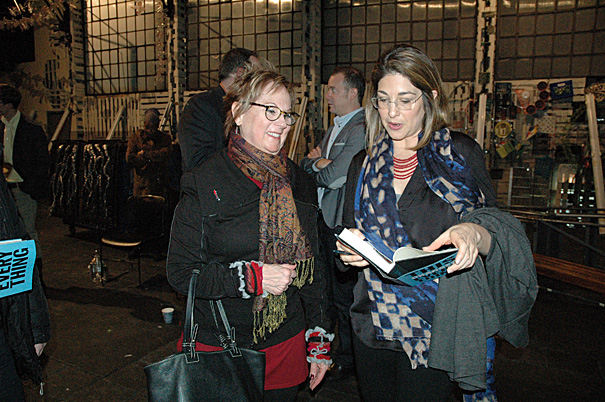
-
Kepler ‘rising from the ashes’
Despite a malfunction that ended its primary mission in May 2013, the Kepler spacecraft is alive and working. The evidence comes from the discovery of a new super-Earth using data collected during Kepler’s “second life.”
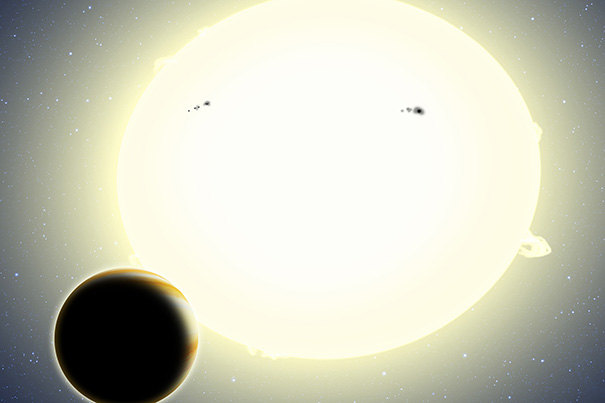
-
Back into the dark
Harvard physicists look toward new frontiers as they anticipate the restart of the Large Hadron Collider and their ATLAS experiment in spring 2015.
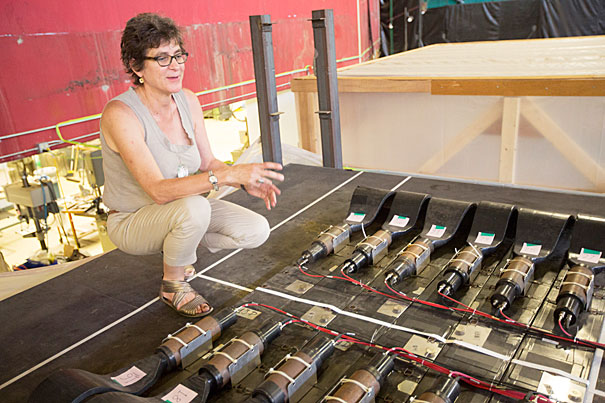
-
Where ideas trump devices
At the annual CS50 Fair, students of history, literature, music, and more create tools to share knowledge across fields.
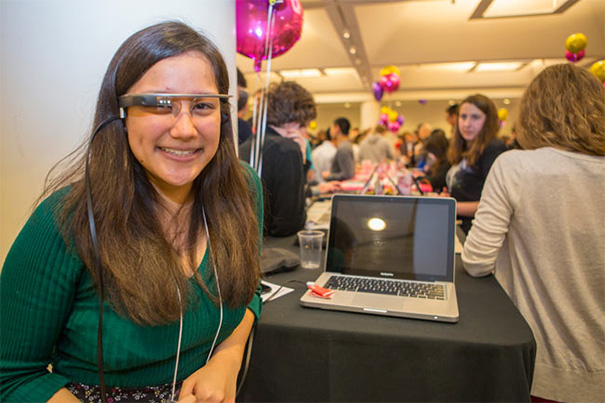
-
Creating ‘genomic origami’
Researchers have assembled the first high-resolution, 3-D maps of entire folded genomes and found a structural basis for gene regulation, a kind of “genomic origami” that allows the same genome to produce different types of cells.
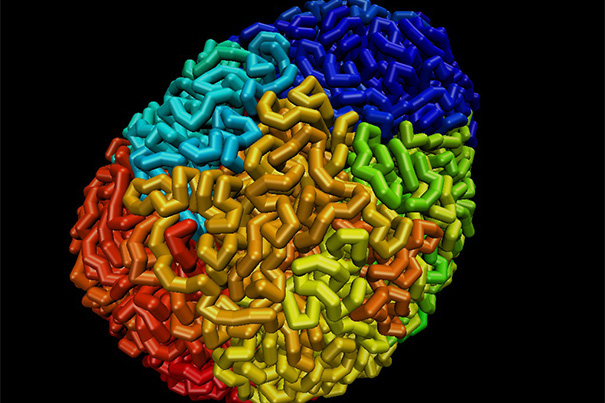
-
Eyes on Orion
Harvard-Smithsonian Center for Astrophysics scientist Jonathan McDowell answers questions on the Orion test run and prospects for getting to Mars.
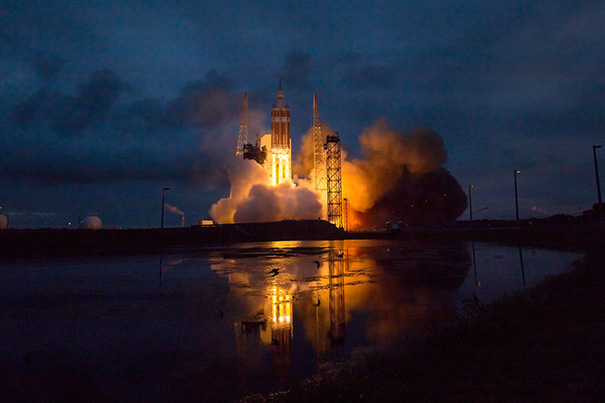
-
She made her mark
Journalist Walter Isaacson and College students talk about the achievements and challenges for women in the field of computer science, including pioneer Grace Hopper.
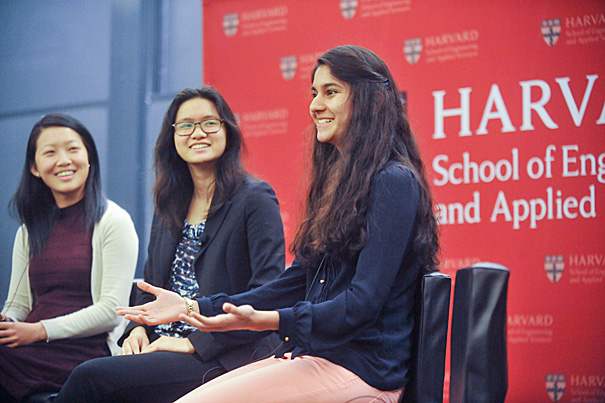
-
The ever-smaller future of physics
Nobel winner Steven Weinberg brought his thoughts on a “theory of everything” to the Physics Department’s Lee Historical Lecture.
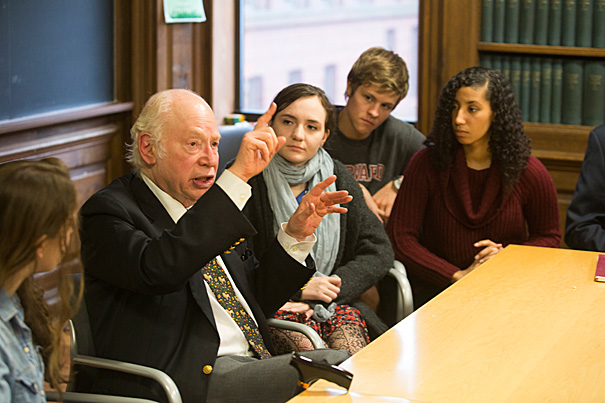
-
The surprising origins of Europeans
Geneticists David Reich and Nick Patterson detailed recent work on human migrations that led to the populations of today’s Europe.
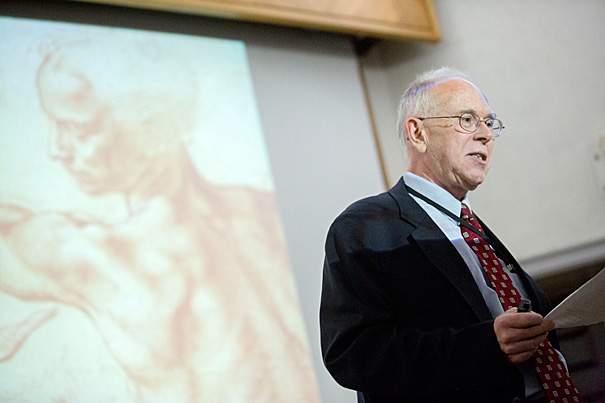
-
Grace Hopper, computing pioneer
Author Walter Isaacson’s new book is “The Innovators: How a Group of Hackers, Geniuses and Geeks Created the Digital Revolution.” Here is an excerpt about computing pioneer Grace Hopper from his book.
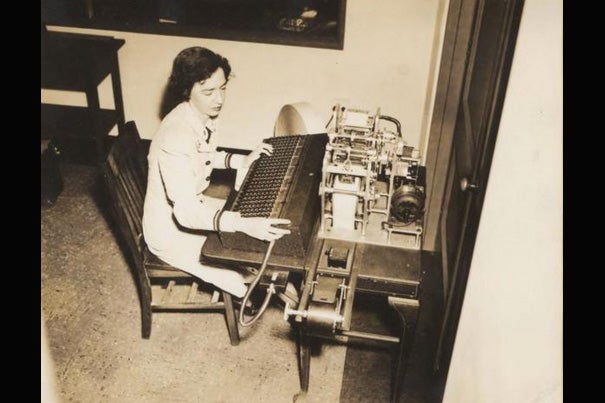
-
Here to there
On Friday, leaders in the field of navigation converged on Radcliffe’s annual science symposium to discuss findings in everything from brain science to animal navigation to the psychology of how a lost person behaves — which can give rescuers important cues about where to look.
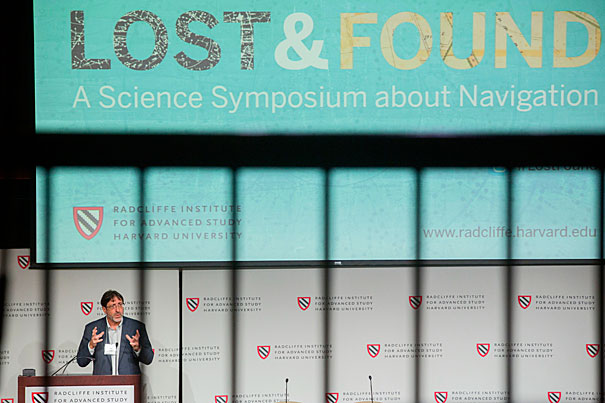
-
Spiritual and sustainable
A Harvard Divinity School conference focused on climate change reduction efforts as moral choices.
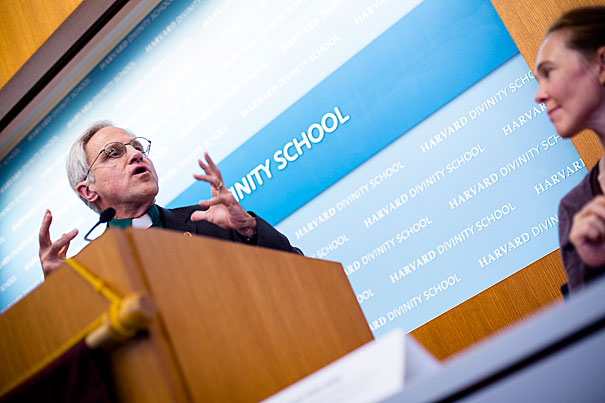
-
Major boost for computer science
Steve Ballmer was joined by President Drew Faust and School of Engineering and Applied Sciences (SEAS) Dean Cherry Murray at an iLab event to formally announce that the University will increase its computer science faculty by 50 percent over the next few years, to 36 from 24.
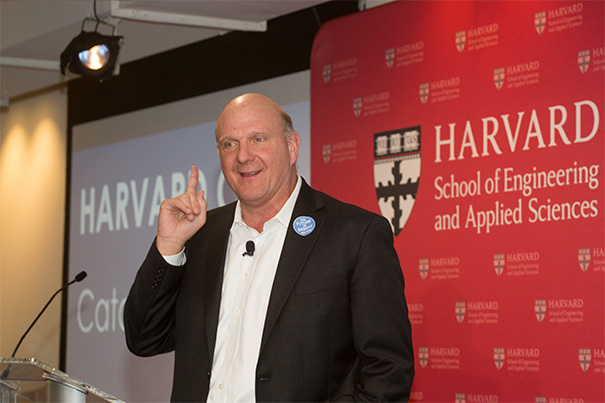
-
Online hub for social science
The Digital Lab for the Social Sciences is designed to serve as an online clearinghouse where social scientists can find study participants.
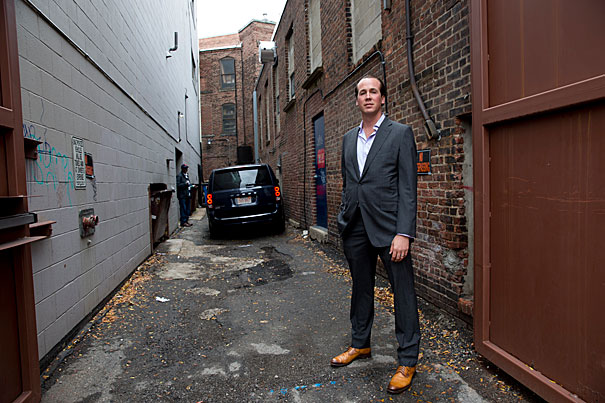
-
New evidence on Neanderthal mixing
New research illuminates the mixing with Neanderthals in early human prehistory, narrowing the window of time when they crossbred to between 50,000 and 60,000 years ago.
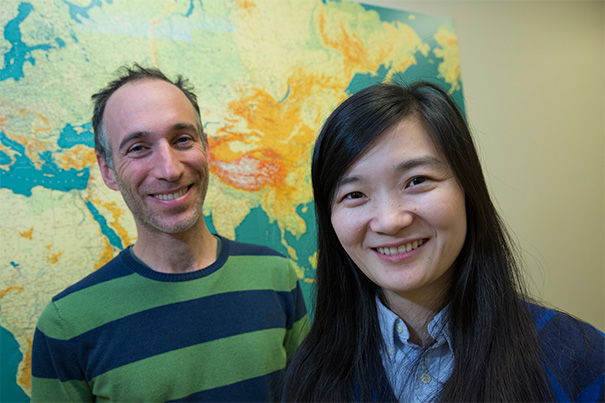
-
A walk on the wild side
Scientist Peter Del Tredici collaborated with artist Teri Rueb on a mobile sound tour of Bussey Brook Meadow.
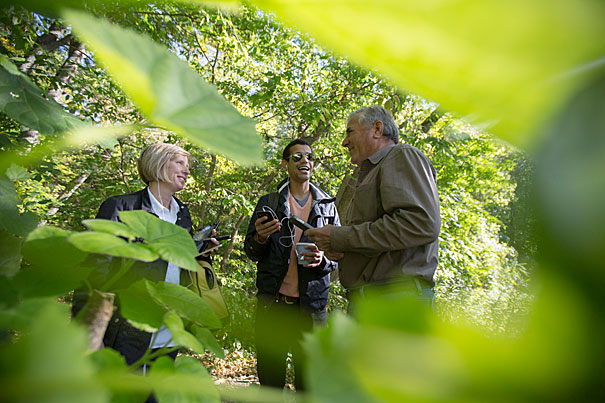
-
Six decades of science as diplomacy
This month, the Harvard Physics Department and swissnex Boston, a cultural and technological exchange effort by the Swiss consulate, are sponsoring a photo exhibit that focuses on the people of CERN — laughing, napping, and thinking — and the sometimes ordinary-looking places where they unearth the extraordinary.
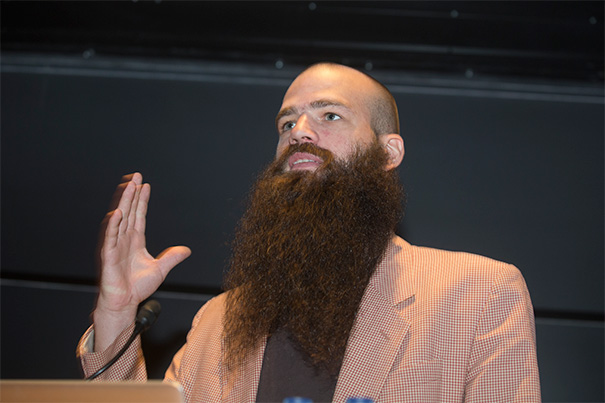
-
SLIPS inspires second generation
In a study reported in Nature Biotechnology, a team of Harvard scientists and engineers has developed a new surface coating for medical devices using materials already approved by the Food and Drug Administration (FDA). The researchers noted that the coating repelled blood from more than 20 medically relevant substrates (glass, plastic, and metal) and also suppressed biofilm formation.
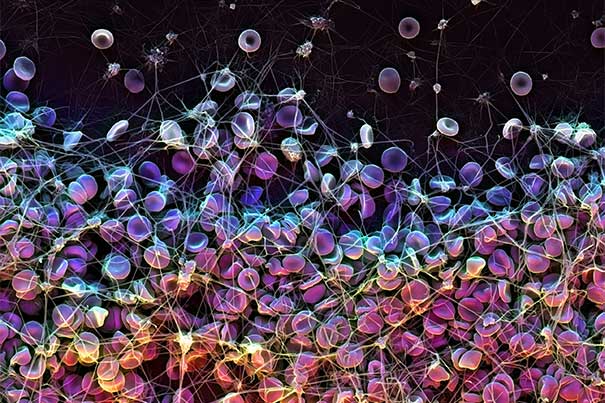
-
Plan to toughen emissions rules faces tough fight
Professors Jody Freeman and Richard Lazarus came together to discuss the legal future of the nation’s most ambitious action on climate change to date.
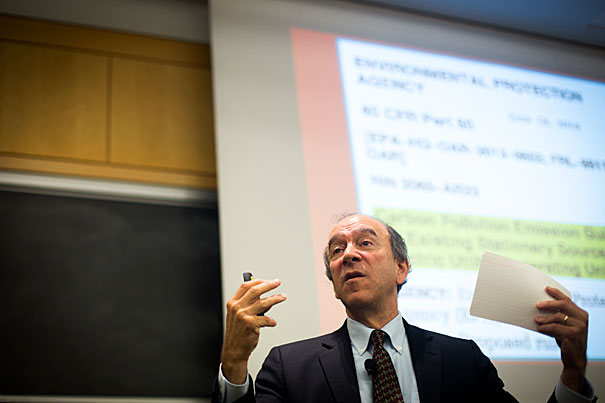
-
Material gain
A team of scientists from Harvard University and MIT has developed a theoretical model of a material that could one day anchor the development of highly efficient solar panels.
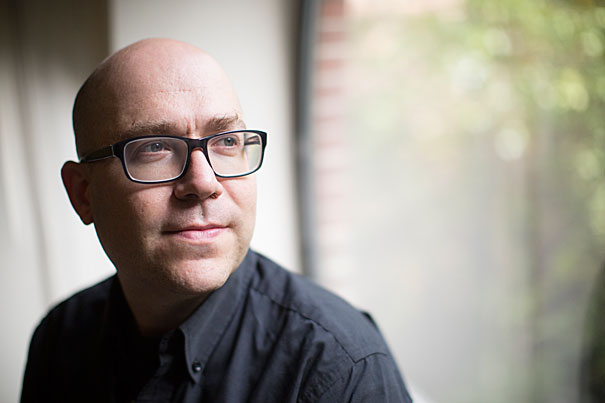
-
Ghosts in the machines
Best-selling author Walter Isaacson ’74 talks about the history of the computer and the Internet.
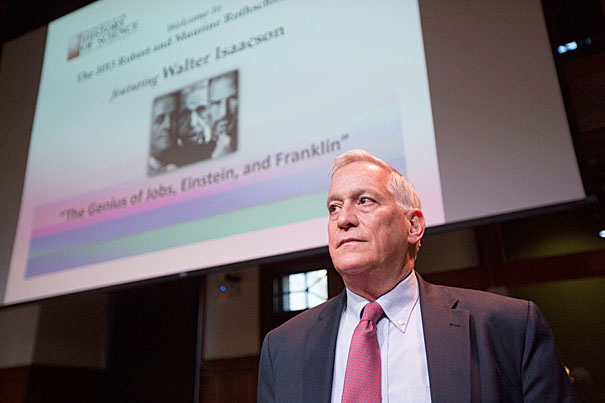
-
A read on seawater sulfate
A tool developed by Professor David Johnston and colleagues might help shed light on biogeochemical cycling in oxygen minimum zones.
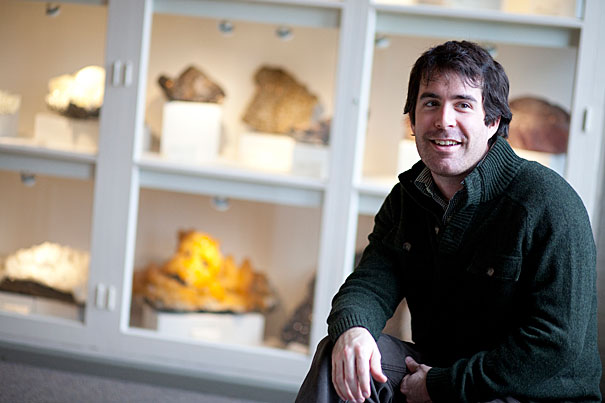
-
Prospects for digital humanities
THATCamp forum allows practitioners of digital humanities to define their concerns, devise solutions for them.
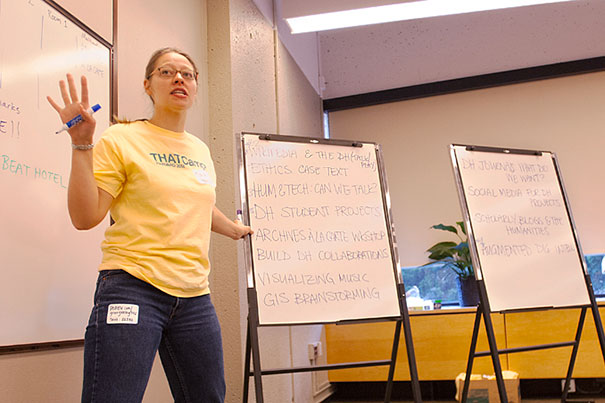
-
Where heat is deadliest
A new study of heat waves found a strong correlation between excess deaths and poverty, poor housing quality, hypertension, and impervious land cover.

-
Far-out questions
Harvard astronomer Avi Loeb talked about the search for intelligent life in a lecture at the Science Center.
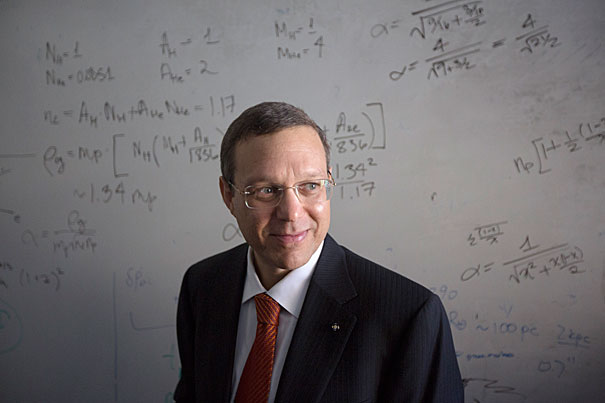
-
Pasta yes, gluten no
At science and cooking lecture, chef Mark Ladner explained his unusual process for making tasty pasta without gluten.
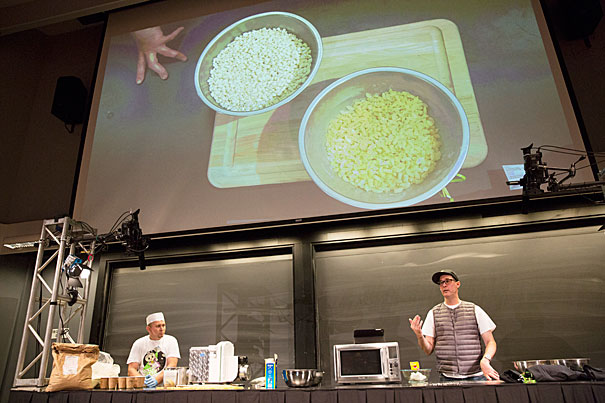
-
On climate, ‘do no harm’
Harvard’s Robert Stavins discusses the importance of flexible rules that allow national carbon markets, if established under a future climate agreement, to link, which would increase efficiency and cut costs of reducing carbon emissions.
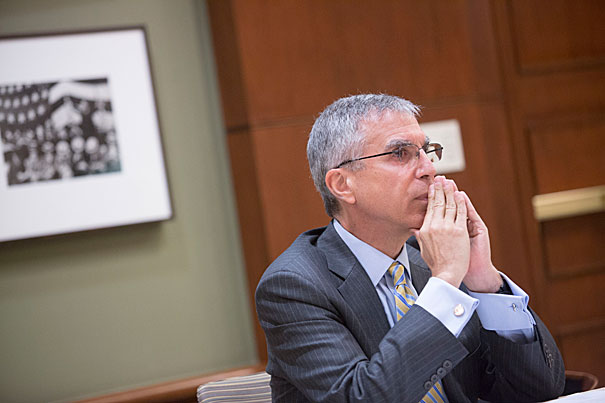
-
An introduction to rebuilding the body
A new course at the Harvard School of Engineering and Applied Sciences is bringing students up to speed on biomedical engineering, preparing them to contribute to University research, pursue summer internships, or take an idea conceived in the classroom to the next stage of development.
